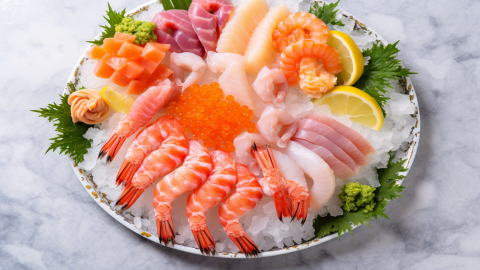Can I eat seafood during an H1N1 influenza outbreak?
Generally speaking, "Avian Flu" refers to Influenza A. If you are not allergic to seafood under normal circumstances, you may consume mildly cooked seafood in moderation during an Influenza A infection. However, if you have a weak gastrointestinal system or are allergic to seafood, it is best to avoid consumption as much as possible. Detailed explanations are as follows:

During an Influenza A infection, if you are not usually allergic to seafood and have relatively good gastrointestinal function, you may consume mildly cooked seafood in moderation. Seafood is rich in proteins, vitamins, and various minerals, which can help replenish energy and nutrients consumed during illness and enhance the body's immunity. In addition, mild cooking methods such as steaming and making soup help preserve the nutritional content of seafood.
If you have a weak gastrointestinal system or are allergic to seafood, you should avoid eating it as much as possible. During an Influenza A infection, digestive function may be somewhat impaired. Since seafood is generally high in protein, it may increase the digestive burden on the gastrointestinal tract, potentially causing indigestion. Furthermore, some patients may be allergic to seafood; consumption may trigger allergic reactions that interfere with recovery.
When making dietary choices, you should fully consider your allergy history, gastrointestinal function, and the cooking methods used for seafood.






